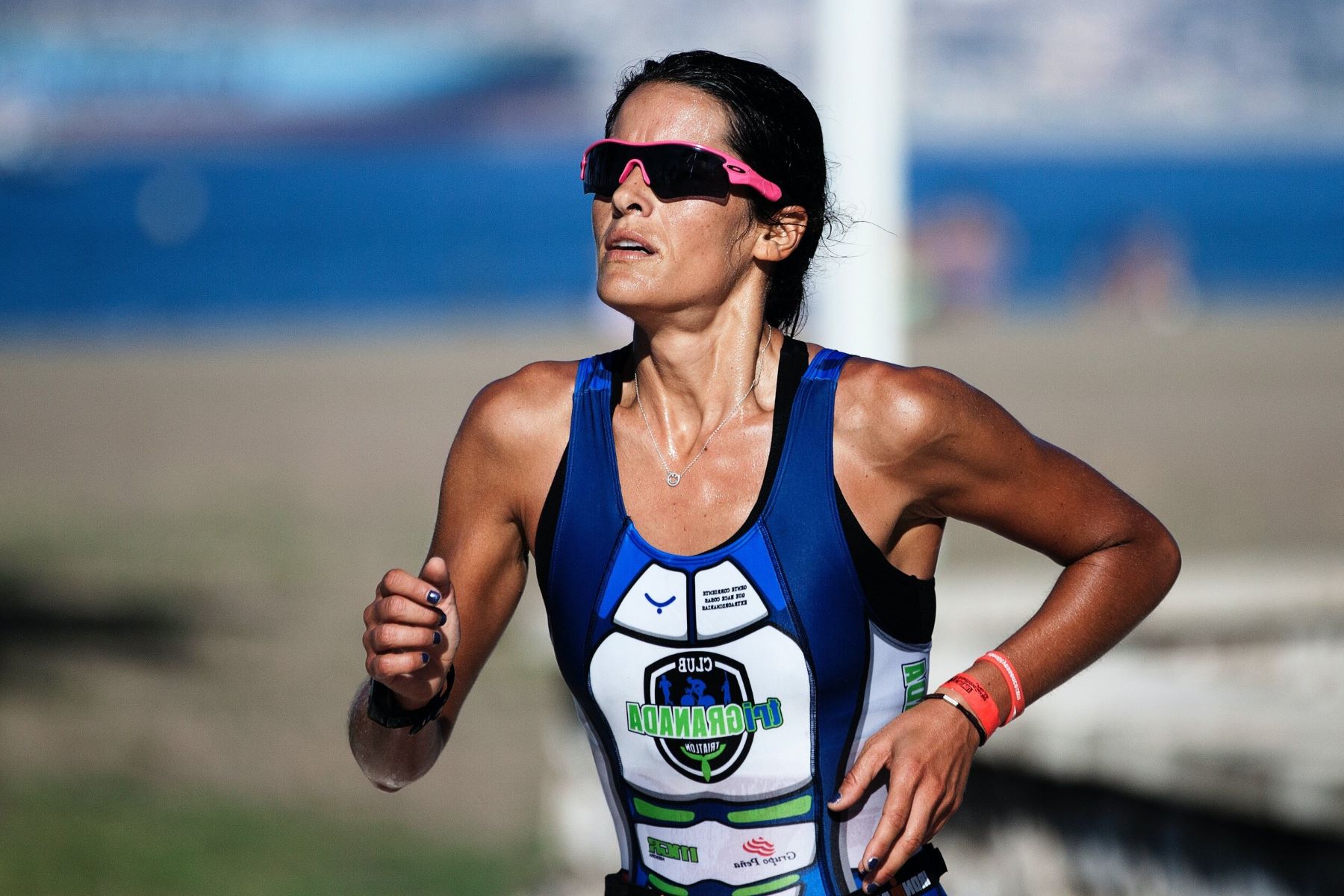Home>Health & Nutrition>The Impact Of Diet On Running Performance During Menstruation


Health & Nutrition
The Impact Of Diet On Running Performance During Menstruation
Published: February 21, 2024
Discover how diet affects running performance during menstruation. Learn about the impact of health and nutrition on female athletes.
(Many of the links in this article redirect to a specific reviewed product. Your purchase of these products through affiliate links helps to generate commission for Therunningadvisor.com, at no extra cost. Learn more)
Table of Contents
- Understanding the Menstrual Cycle and Its Effects on Running Performance
- The Role of Nutrition in Supporting Menstrual Health and Running Performance
- Dietary Considerations for Female Runners during Menstruation
- Hydration Strategies for Female Runners during Menstruation
- Nutritional Supplements and Their Impact on Running Performance during Menstruation
Understanding the Menstrual Cycle and Its Effects on Running Performance
The menstrual cycle is a natural process that occurs in the female body, typically lasting around 28 days, although this can vary from person to person. It consists of four distinct phases: the menstrual phase, the follicular phase, ovulation, and the luteal phase. Each phase is characterized by unique hormonal fluctuations, which can impact a woman's physical and emotional well-being, including her running performance.
During the menstrual phase, which marks the beginning of the cycle, the levels of estrogen and progesterone are at their lowest. This can lead to feelings of fatigue and lethargy in some women, potentially affecting their running performance. As the cycle progresses into the follicular phase, estrogen levels gradually increase, contributing to a surge in energy and endurance for many female runners. This phase is often considered the most favorable for high-intensity training and racing due to the heightened physical capabilities.
Ovulation, the next phase, typically occurs around the middle of the menstrual cycle. Estrogen levels peak during this time, potentially enhancing muscle function and overall performance. However, some women may experience discomfort or bloating, which can impact their running experience. Finally, the luteal phase, which occurs after ovulation, is characterized by a rise in progesterone levels. This hormone can lead to increased water retention and a decrease in energy levels for some women, potentially affecting their running performance.
It's important to note that the menstrual cycle affects each woman differently. Some may experience minimal changes in their running performance, while others may notice significant fluctuations. Understanding these variations is crucial for female runners, as it allows them to adapt their training and nutrition to optimize their performance throughout the menstrual cycle.
By recognizing the impact of the menstrual cycle on running performance, female athletes can make informed decisions about their training schedules, intensity levels, and recovery strategies. Additionally, being attuned to their bodies' natural rhythms enables women to cultivate a greater sense of empowerment and control over their athletic endeavors, ultimately leading to improved overall performance.
The Role of Nutrition in Supporting Menstrual Health and Running Performance
Nutrition plays a pivotal role in supporting both menstrual health and running performance for female athletes. The intricate interplay between diet, hormonal balance, and physical activity underscores the significance of maintaining optimal nutritional practices throughout the menstrual cycle. By strategically aligning dietary choices with the body's fluctuating needs, female runners can enhance their overall well-being and athletic capabilities.
Essential nutrients, such as iron, calcium, and vitamin D, are particularly vital for supporting menstrual health and running performance. Iron is crucial for replenishing the blood supply lost during menstruation and sustaining oxygen transport to working muscles. Inadequate iron levels can lead to fatigue and diminished endurance, highlighting the importance of incorporating iron-rich foods, such as lean meats, legumes, and leafy greens, into the diet.
Similarly, calcium and vitamin D are essential for bone health, which is especially pertinent for female runners due to the increased risk of bone density issues. Ensuring an adequate intake of dairy products, fortified plant-based milks, and sunlight exposure can help maintain strong and resilient bones, reducing the likelihood of stress fractures and other skeletal complications.
Furthermore, the consumption of complex carbohydrates, lean proteins, and healthy fats is instrumental in providing sustained energy levels and supporting muscle recovery throughout the menstrual cycle. Complex carbohydrates, found in whole grains, fruits, and vegetables, serve as a primary energy source, while lean proteins, such as poultry, fish, and legumes, facilitate muscle repair and growth. Additionally, incorporating healthy fats, such as avocados, nuts, and olive oil, aids in hormone production and absorption of fat-soluble vitamins, contributing to overall hormonal balance and well-being.
In the context of menstrual health, specific nutrients, such as omega-3 fatty acids and magnesium, have been associated with alleviating menstrual symptoms, including cramping and mood fluctuations. Omega-3 fatty acids, commonly found in fatty fish and flaxseeds, possess anti-inflammatory properties that may mitigate menstrual discomfort, while magnesium, abundant in nuts, seeds, and leafy greens, has been linked to reducing muscle tension and promoting relaxation.
By prioritizing a well-rounded and nutrient-dense diet, female runners can effectively support their menstrual health and optimize their running performance. Tailoring nutritional intake to align with the unique demands of each menstrual cycle phase empowers women to harness their body's natural rhythms, fostering resilience, vitality, and sustained athletic achievement.
Dietary Considerations for Female Runners during Menstruation
During menstruation, female runners can benefit from specific dietary considerations that cater to the body's fluctuating nutritional needs. Understanding and addressing these needs can help mitigate potential disruptions to running performance and overall well-being.
-
Iron-Rich Foods: Incorporating iron-rich foods into the diet is crucial during menstruation, as women lose blood and iron during their menstrual cycle. Including lean meats, poultry, fish, lentils, beans, and leafy greens can help replenish iron stores and combat fatigue, ensuring sustained energy levels for running.
-
Hydration: Proper hydration is essential for female runners, especially during menstruation when the body may experience increased fluid loss. Adequate water intake can help alleviate bloating and reduce the risk of dehydration, which can impact performance and recovery.
-
Nutrient-Dense Carbohydrates: Consuming nutrient-dense carbohydrates, such as whole grains, fruits, and vegetables, provides a sustained source of energy for running. These foods also contribute to replenishing glycogen stores, supporting endurance and optimal performance during menstruation.
-
Calcium and Vitamin D: Ensuring sufficient intake of calcium and vitamin D is vital for maintaining bone health, particularly important for female runners who are susceptible to bone density issues. Dairy products, fortified plant-based milks, and exposure to sunlight are valuable sources of these nutrients.
-
Omega-3 Fatty Acids: Including sources of omega-3 fatty acids, such as salmon, chia seeds, and walnuts, can help alleviate menstrual discomfort and inflammation, potentially enhancing running comfort and performance during menstruation.
-
Mindful Eating: Practicing mindful eating and paying attention to hunger and satiety cues can help female runners maintain a balanced and nourishing diet during menstruation. This approach supports overall well-being and can aid in managing cravings and mood fluctuations.
By integrating these dietary considerations into their nutrition plan, female runners can optimize their running performance and support their overall health during menstruation. Tailoring dietary choices to accommodate the body's changing needs empowers female athletes to navigate their menstrual cycle with resilience and vitality, ultimately enhancing their running experience.
Hydration Strategies for Female Runners during Menstruation
Proper hydration is a fundamental aspect of maintaining optimal performance and well-being for female runners, particularly during menstruation. The menstrual cycle can bring about changes in fluid balance and hydration needs, making it essential for women to implement targeted hydration strategies to support their running endeavors.
During menstruation, the body experiences increased fluid loss due to blood flow, potentially leading to dehydration if adequate measures are not taken. Therefore, female runners should prioritize consistent and mindful hydration practices to mitigate the impact of fluid loss and support their overall performance.
One key strategy for maintaining proper hydration during menstruation is to monitor fluid intake closely. Women should strive to consume an adequate amount of water throughout the day, paying attention to their individual hydration needs. This can be especially crucial during physical activity, as the body's demand for fluids increases during exercise. By preemptively hydrating before a run and consistently replenishing fluids during and after exercise, female runners can help offset the potential effects of fluid loss associated with menstruation.
In addition to water, incorporating electrolyte-rich beverages, such as sports drinks or coconut water, can be beneficial for female runners during menstruation. Electrolytes, including sodium, potassium, and magnesium, play a vital role in regulating fluid balance and supporting muscle function. By choosing hydrating options that contain electrolytes, women can replenish essential minerals lost through sweat and menstrual fluid, thereby promoting optimal hydration and minimizing the risk of electrolyte imbalances.
Furthermore, paying attention to signs of dehydration, such as increased thirst, dark urine, or feelings of fatigue, is crucial for female runners during menstruation. By staying attuned to these indicators, women can proactively adjust their fluid intake to maintain proper hydration levels, supporting their running performance and overall well-being.
It's important to note that individual hydration needs can vary based on factors such as climate, exercise intensity, and personal physiology. Therefore, female runners should listen to their bodies and adapt their hydration strategies accordingly, ensuring that they meet their unique fluid requirements during menstruation.
By implementing targeted hydration strategies, female runners can effectively support their performance and well-being during menstruation. Consistent and mindful attention to hydration not only helps mitigate the potential impact of fluid loss but also contributes to overall resilience and vitality, empowering women to pursue their running goals with confidence and strength.
Nutritional Supplements and Their Impact on Running Performance during Menstruation
Nutritional supplements can play a significant role in supporting the running performance of female athletes during menstruation. While a well-balanced diet should be the primary source of essential nutrients, certain supplements can offer targeted support to address the specific needs that arise during the menstrual cycle.
-
Iron Supplements: Iron is a critical nutrient for female runners, especially during menstruation when blood loss occurs. Supplementing with iron can help replenish depleted iron stores and combat the risk of iron deficiency anemia, which can lead to fatigue and diminished performance. However, it's important to consult a healthcare professional before starting iron supplementation, as excessive iron intake can have adverse effects.
-
Calcium and Vitamin D Supplements: Ensuring adequate calcium and vitamin D intake is essential for maintaining bone health, particularly for female runners who may be at a higher risk of bone density issues. Supplementing with calcium and vitamin D can help support bone strength and reduce the likelihood of stress fractures, providing valuable support during menstruation.
-
Omega-3 Fatty Acid Supplements: Omega-3 fatty acids have been associated with anti-inflammatory properties and may help alleviate menstrual discomfort and inflammation. Supplementing with omega-3 fatty acids from sources such as fish oil or algae-based supplements can potentially contribute to enhanced comfort and overall well-being during menstruation, positively impacting running performance.
-
Multivitamins: A high-quality multivitamin tailored to the specific needs of female athletes can serve as a convenient way to ensure comprehensive nutrient intake. Look for multivitamins that contain essential vitamins and minerals, including B vitamins, magnesium, and antioxidants, to support overall health and well-being throughout the menstrual cycle.
It's important to emphasize that while nutritional supplements can offer valuable support, they should not replace a balanced diet. Female runners should prioritize obtaining essential nutrients from whole foods and consider supplements as a complementary strategy to address specific needs. Additionally, consulting with a healthcare provider or a registered dietitian is advisable before initiating any supplementation regimen, as individual requirements and potential interactions should be carefully considered.
By incorporating targeted nutritional supplements as part of a comprehensive approach to menstrual health and running performance, female athletes can optimize their nutrient intake and support their overall well-being, contributing to sustained vitality and resilience throughout the menstrual cycle.
















